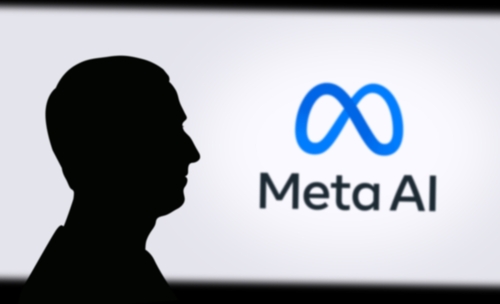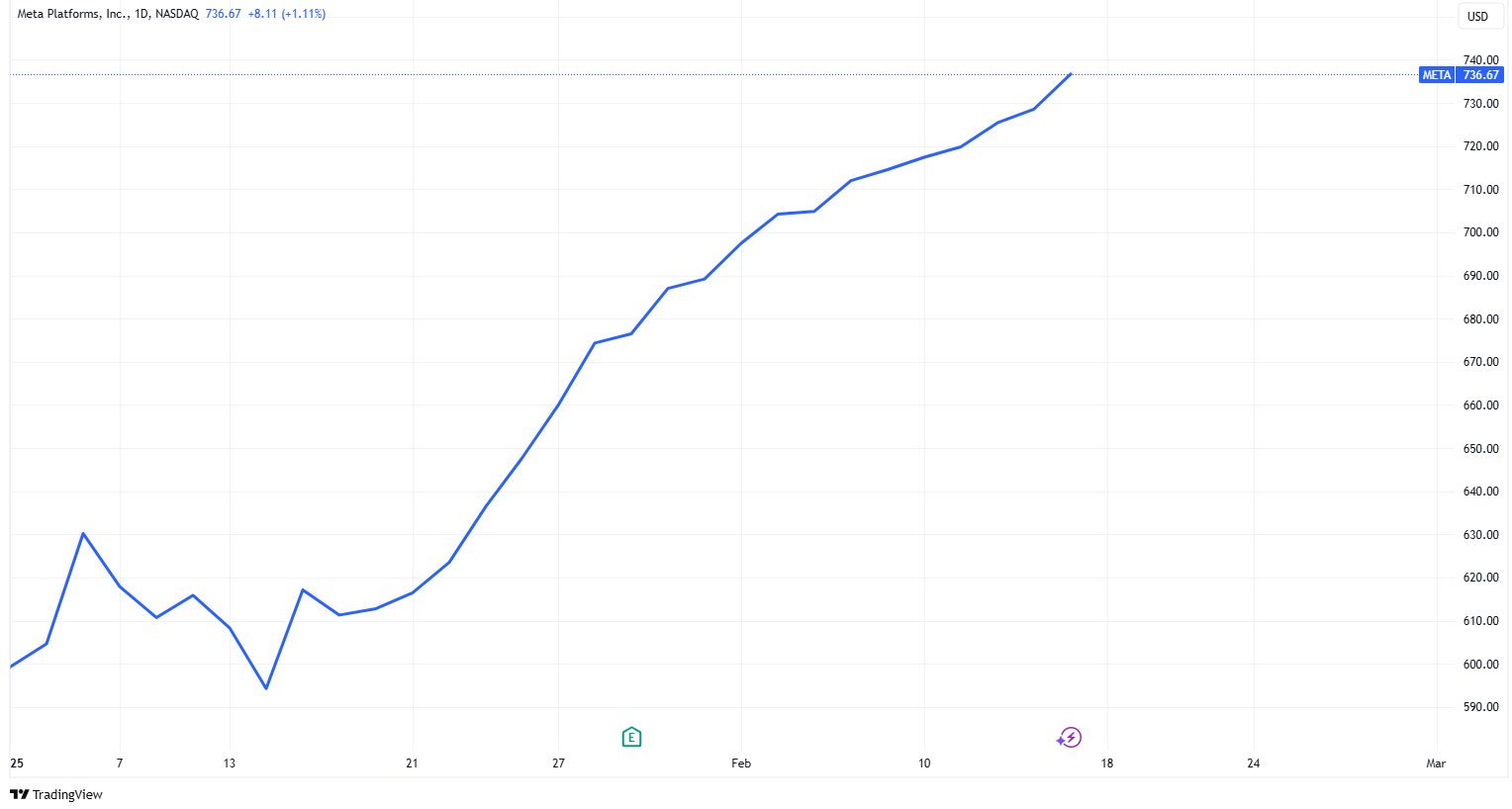Meta’s 20-Day Rally—Is There Still Time to Get In?

TradingKey - Meta Platforms (META) has been on an extraordinary run, surging for 20 consecutive trading sessions—the longest winning streak for a Nasdaq 100 stock since 1990. The stock has already gained more than 25% this year, pushing its market capitalization past $1.8 trillion.

Source: TradingView
What has been driving Meta’s rally?
Meta Announces Record-High AI Investment
While there are questions about when Microsoft and Alphabet will see a return on their AI spending, Meta’s investment has changed how it targets and measures ads, meaning faster growth and a higher average revenue per user, said Conrad van Tienhoven, a portfolio manager at Riverpark Capital.
The company plans to invest up to $65 billion in AI-related projects in 2025, including building a new large-scale data center and expanding its AI teams. This underscores Meta’s deep commitment to artificial intelligence. Just days before this announcement, OpenAI, SoftBank, and Oracle introduced a $100 billion joint venture, Stargate, aimed at developing AI infrastructure across the U.S.
AI-Driven Advertising: The Key Growth Engine
Meta’s success is not just about the scale of its AI investments—it’s about how effectively it applies AI to its core business. Unlike some competitors that build AI infrastructure primarily for external clients, Meta has focused on enhancing its social media and advertising platforms.
AI-powered content recommendations have boosted user engagement significantly, with Facebook users spending 8% more time on the platform and Instagram users increasing their time by 6%. More importantly, Meta’s AI-driven ad tools have seen explosive growth—within just six months, the number of advertisers using these tools jumped fourfold, from 1 million to 4 million.
Open-Sourcing Llama Could Foster a Broader Ecosystem
Meta has also benefited from a broader shift in AI development. The recent emergence of DeepSeek, a Chinese AI startup, initially triggered a selloff in tech stocks. However, investors ultimately viewed DeepSeek’s success as a validation of open-source AI models—an approach Meta has championed with its Llama series.
By making Llama open-source, Meta has positioned itself as a key player in the AI ecosystem, potentially capturing significant value as its models become foundational for various applications. The anticipated release of Llama 4 could further strengthen Meta’s AI influence and unlock new revenue streams through licensing deals.
Rosenblatt analyst Barton Crockett recently stated, “Nobody is more bullish on AI than Meta, and Meta might have more benefits to show from AI than anyone.”
AI Boost Drives Impressive Earnings Growth
Meta’s latest earnings report has further bolstered investor confidence. The company’s AI investments are translating into strong financial results, with 2024 revenue expected to grow 22% to $164 billion, while earnings are projected to increase 60%.
With over 3.3 billion daily active users across its platforms, Meta has a massive opportunity to leverage AI for improving engagement and boosting ad revenue. The company is also making strides in AI-driven personalization, with its Meta AI assistant now boasting 700 million monthly active users, a figure expected to reach 1 billion by year-end.
Closer Ties with Trump May Give Meta More Leeway
Despite ongoing regulatory scrutiny and fierce competition in the social media space, Meta may have found a way to navigate these challenges. CEO Mark Zuckerberg has recently aligned the company more closely with President Donald Trump, a move that could provide some regulatory breathing room.
Zuckerberg has repeatedly expressed confidence that Trump’s policies will help solidify U.S. tech dominance, shield companies from excessive regulations, and counter foreign competition. During Meta’s January earnings call, he emphasized that 2024 will be “a big year for redefining our relationship with governments.”
Since Trump’s January 20 inauguration, Meta’s stock has closed higher every single trading day.
Is There Still an Opportunity to Buy?
Despite its recent surge, Meta’s valuation remains relatively reasonable. The stock’s forward P/E ratio of 28.74 is only slightly above the Nasdaq 100 average of 27.59, suggesting that it is not excessively priced compared to broader tech peers.
However, technical indicators signal potential short-term risks. Meta’s 14-day Relative Strength Index (RSI) has reached 80.2, well above the overbought threshold of 70. This could indicate that the stock is due for a pullback in the near term.






